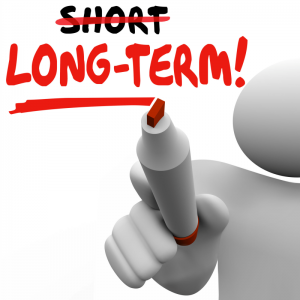
“Now or never”… “Hurry, offer expiring”… “What are you waiting for?”… “Choose it or lose it”… “When it’s gone it’s gone”… “Don’t wait, the time will never be just right”… “Don’t miss it!”… “It ends today!”… Whoa! What’s going on here! Look around and you will find that our life is inundated by such phrases like never before. Add to it acronyms like YOLO (You Only Live Once) and FOMO (Fear of Missing Out) and you will realize that we are living in an era where impulse is being ‘catered to’ with near seductive intensity and temptation is pursued with unprecedented vehemence.
So, have the rules of success and happiness changed? Has the ‘law of the farm’ given way to some new digital algorithm that has transformed the nature of everything into binary – either-or, now-never, all-nothing? Well, if that isn’t the case then how to revive the lost ability to dig one’s heels in and stay on course? Before we discuss this point in details, watch this video to get the gist of what we are discussing, why it is important, and how it is relevant in professional and personal context…
Yup! Sacrificing immediate gains for bigger rewards in future depends on your ability to envision. Vision is the ability to see things earlier, farther and clearer than others. As they say, ‘Good things come to those who wait’! But resisting an urge is not easy. In psychology, there is a term called ‘immediate gratification’ – giving preference to ‘small sooner’ even over ‘larger later’. Well, like for any behavior, the root of this point lies in neuroscience.
If we will look at our brain then we will find that there is a reward-region in our brain called nucleus accumbens, which is a major recipient of dopamine – the chemical of pleasure and reward. Then there is an important brain-part called hippocampus which plays a critical role in memory as well as in future planning. This hippocampal–accumbens interaction plays the all-important role our decisions related to time trade-off. When people are not able to resist the temptation of immediate rewards that will hurt their long-term goals, then an imbalance is found in hippocampal–accumbens interaction in favor of latter.
In other words, the moment you stop being mindful of future goals, you risk succumbing to immediate gratification. Interestingly, people who can resist this immediate gratification have an activation in another brain-area. It is anterior Prefrontal Cortex. This part is integral to prospective memory, i.e. in remembering to do something in future. Yes! People with patience to wait for a larger reward actually imagine future. They devote relatively more energy in imagining receiving their reward later – i.e. ability to envision. Well, but to appreciate this fact, social & emotional intelligence is needed.
This ‘emotional & social intelligence’ is about one’s cognizance of the design and functioning of human brain, and how they have the all-important impact on our behavior and choices. This confluence of neuroscience and psychology sets the foundation for developing emotional & social intelligence – the skill of managing self and connecting with others. Yes, this all-important skill of all intrapersonal & interpersonal skills can be learnt, practiced and mastered. However, it all begins with some important realizations like…“Sacrificing immediate gains for bigger rewards in future depends on your ability to envision”.
Dr. Sandeep Atre
‘Emotional & Social Intelligence’ Expert
Founder – Socialigence
Note: Socialigence (www.socialigence.net) offers self-paced video-based online course on ‘Social & Emotional Intelligence’ with content that has relevance across the globe, and delivery specifically customized according to the work-scenarios in India.
